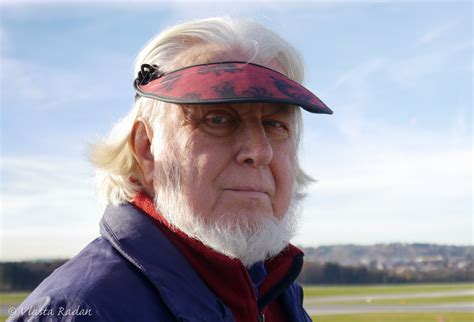A Quote by Ludwig von Mises
Capitalism and socialism are two distinct patterns of social organization. Private control of the means of production and public control are contradictory notions and not merely contrary notions. There is no such thing as a mixed economy, a system that would stand midway between capitalism and socialism.
Related Quotes
Like most terms of political discourse, socialism has more or less, lost its meaning. Socialism used to mean something. If you go back far enough it meant basically control of production by producers, elimination of wage labor, democratization of all spheres of life; production, commerce, education, media, workers control of factories, community control of communities, and so on. That was socialism once. But it hasn't meant that for a hundred years. Socialism meant something different.
Socialism needs to pull down wealth; liberalism seeks to raise up poverty. Socialism would destroy private interests, Liberalism would preserve [them] ... by reconciling them with public right. Socialism would kill enterprise; Liberalism would rescue enterprise from the trammels of privilege and preference. Socialism assails the preeminence of the individual; Liberalism seeks ... to build up a minimum standard for the mass. Socialism exalts the rule; Liberalism exalts the man. Socialism attacks capitalism; Liberalism attacks monopoly.
In the course of history periods of capitalism and socialism alternate with one another; capitalism is the unnatural, socialism the natural economic system... The National Socialists and the Red Front have the same aspirations. The Jews falsified the Revolution in the form of Marxism and that failed to bring fulfilment.
Everyday I become more convinced, there is no doubt in my mind, and as many intellectuals have said, that it is necessary to transcend capitalism. But capitalism can't be transcended from with capitalism itself, but through socialism, true socialism, with equality and justice. I'm also convinced that it is possible to do it under democracy, but not in the type of democracy being imposed by Washington.
Capitalism means free enterprise, sovereignty of the consumers in economic matters, and sovereignty of the voters in political matters. Socialism means full government control of every sphere of the individuals life and the unrestricted supremacy of the government in its capacity as central board of production management.
The difference between [socialism and fascism] is superficial and purely formal, but it is significant psychologically: it brings the authoritarian nature of a planned economy crudely into the open. The main characteristic of socialism (and of communism) is public ownership of the means of production, and, therefore, the abolition of private property. The right to property is the right of use and disposal. Under fascism, men retain the semblance or pretense of private property, but the government holds total power over its use and disposal.
What is called 'capitalism'is basically a system of corporate mercantilism, with huge and largely unaccountable private tyrannies exercising vast control over the economy, political systems, and social and cultural life, operating in close cooperation with powerful states that intervene massively in the domestic economy and international society.
Despite the miracles of capitalism, it doesn't do well in popularity polls. One of the reasons is that capitalism is always evaluated against the non-existent, non-realizable utopias of socialism or communism. Any earthly system, when compared to a Utopia, will pale in comparison. But for the ordinary person, capitalism, with all of its warts, is superior to any system yet devised to deal with our everyday needs and desires.
A Jesuit once wrote a note to Father Arrupe, his superior general, asking him about the relative value of communism, socialism and capitalism. Father Arrupe gave him a lovely reply. He said, "A system is about as good or as bad as the people who use it." People with golden hearts would make capitalism or communism or socialism work beautifully.































